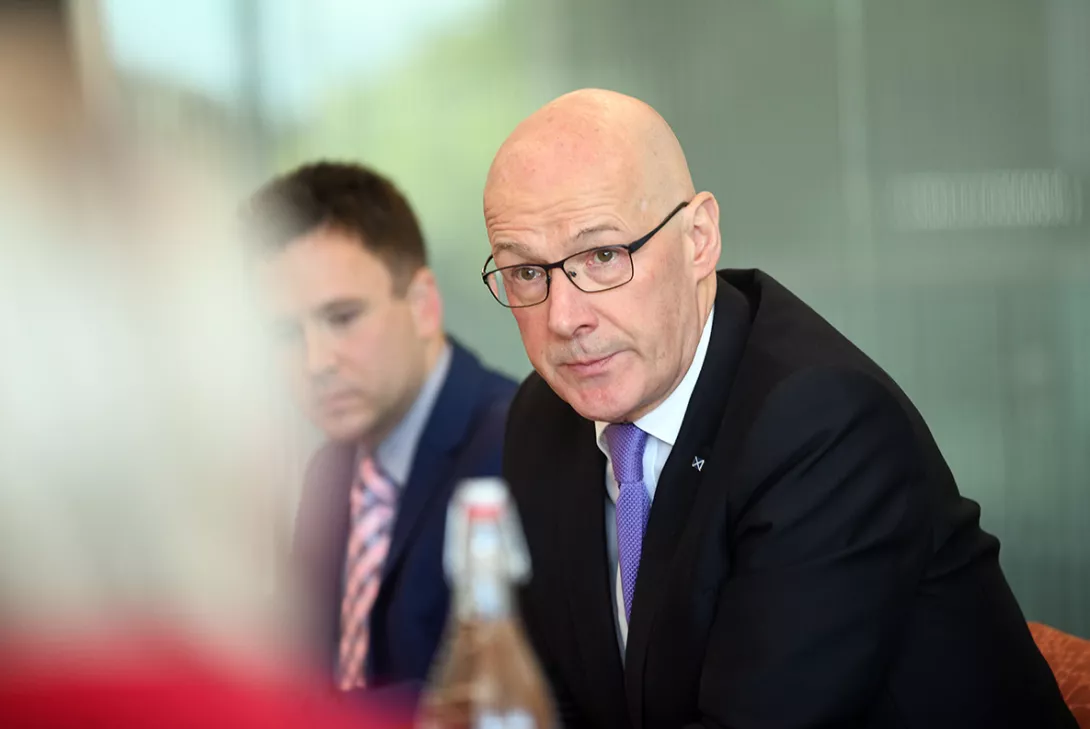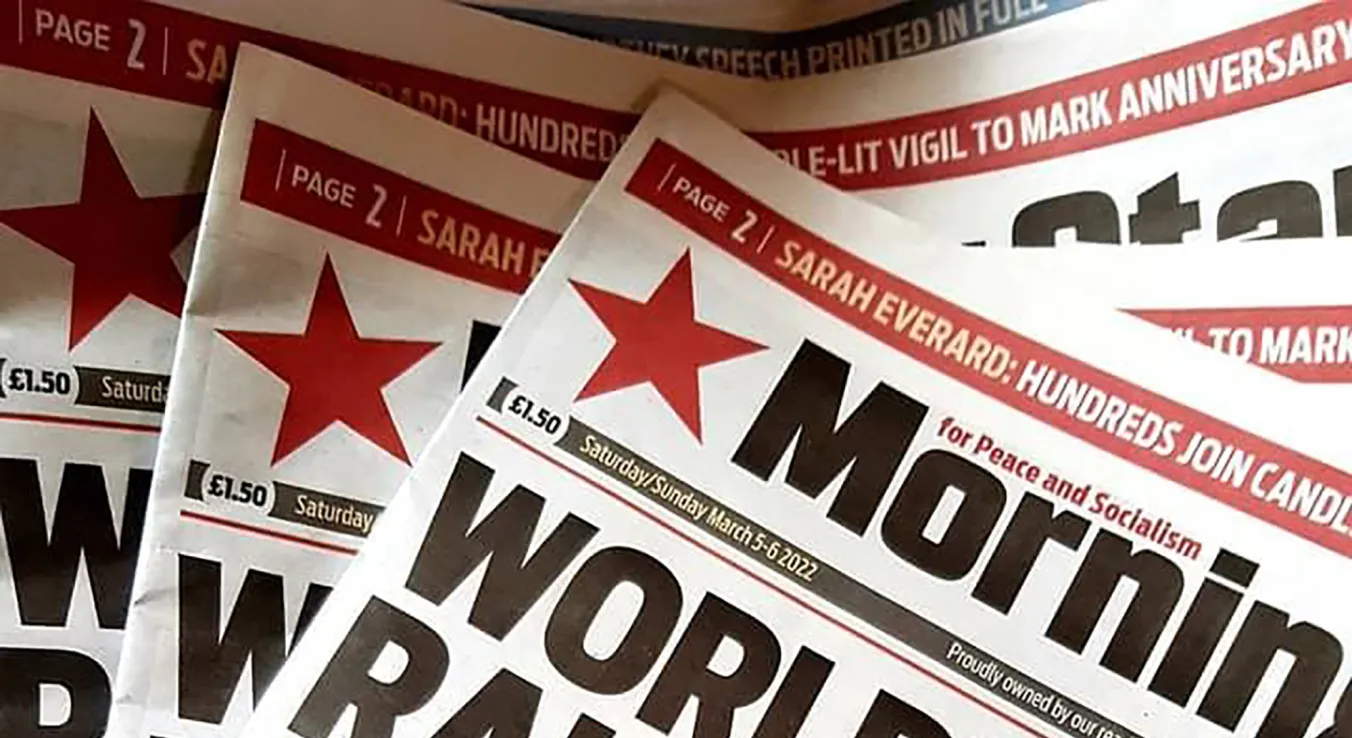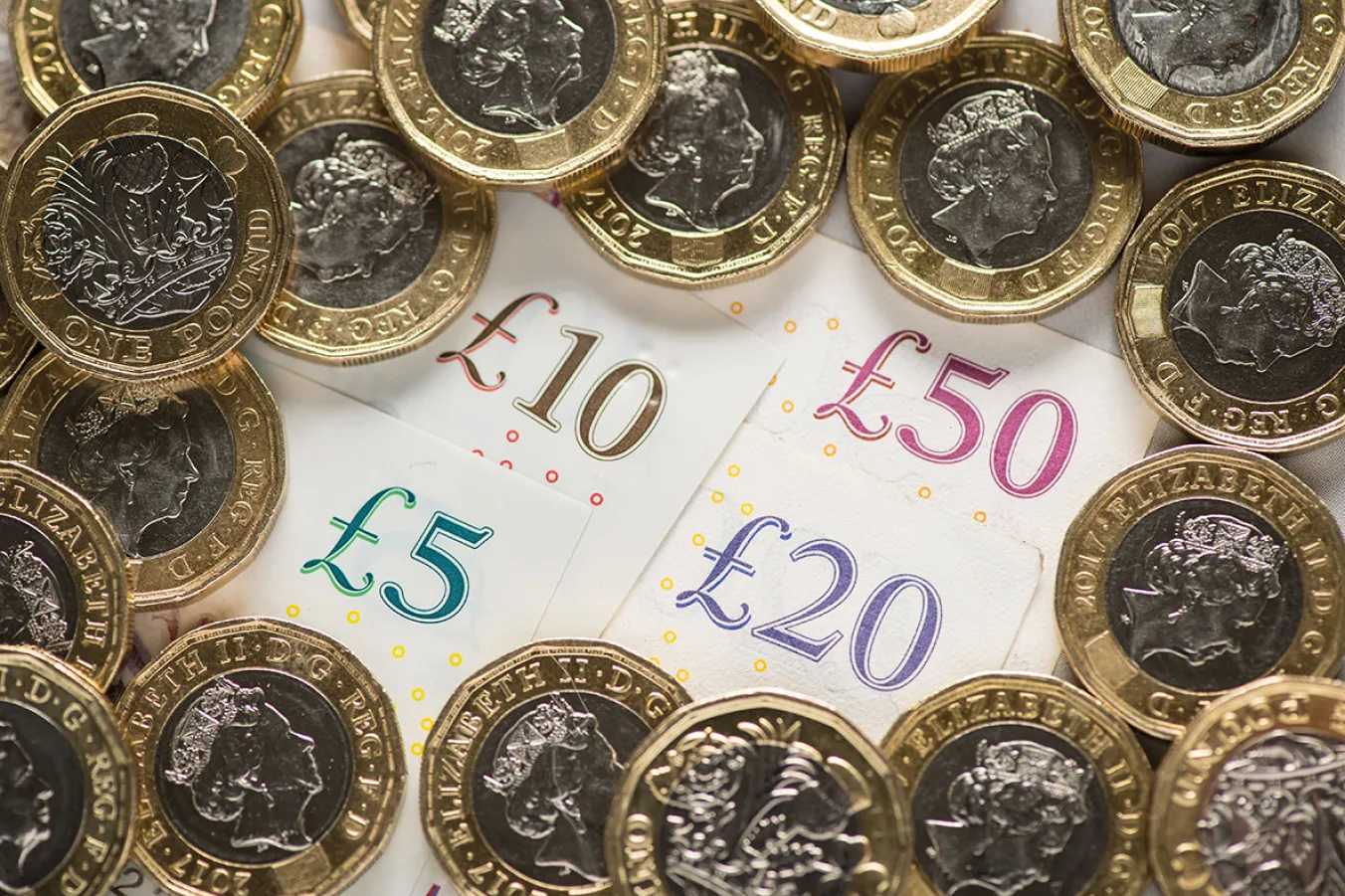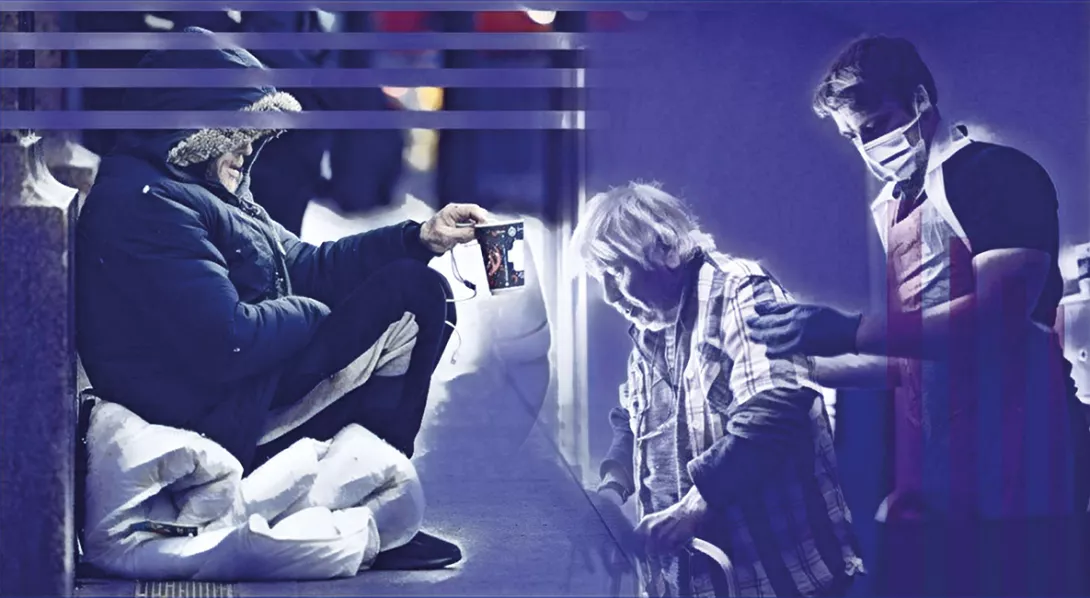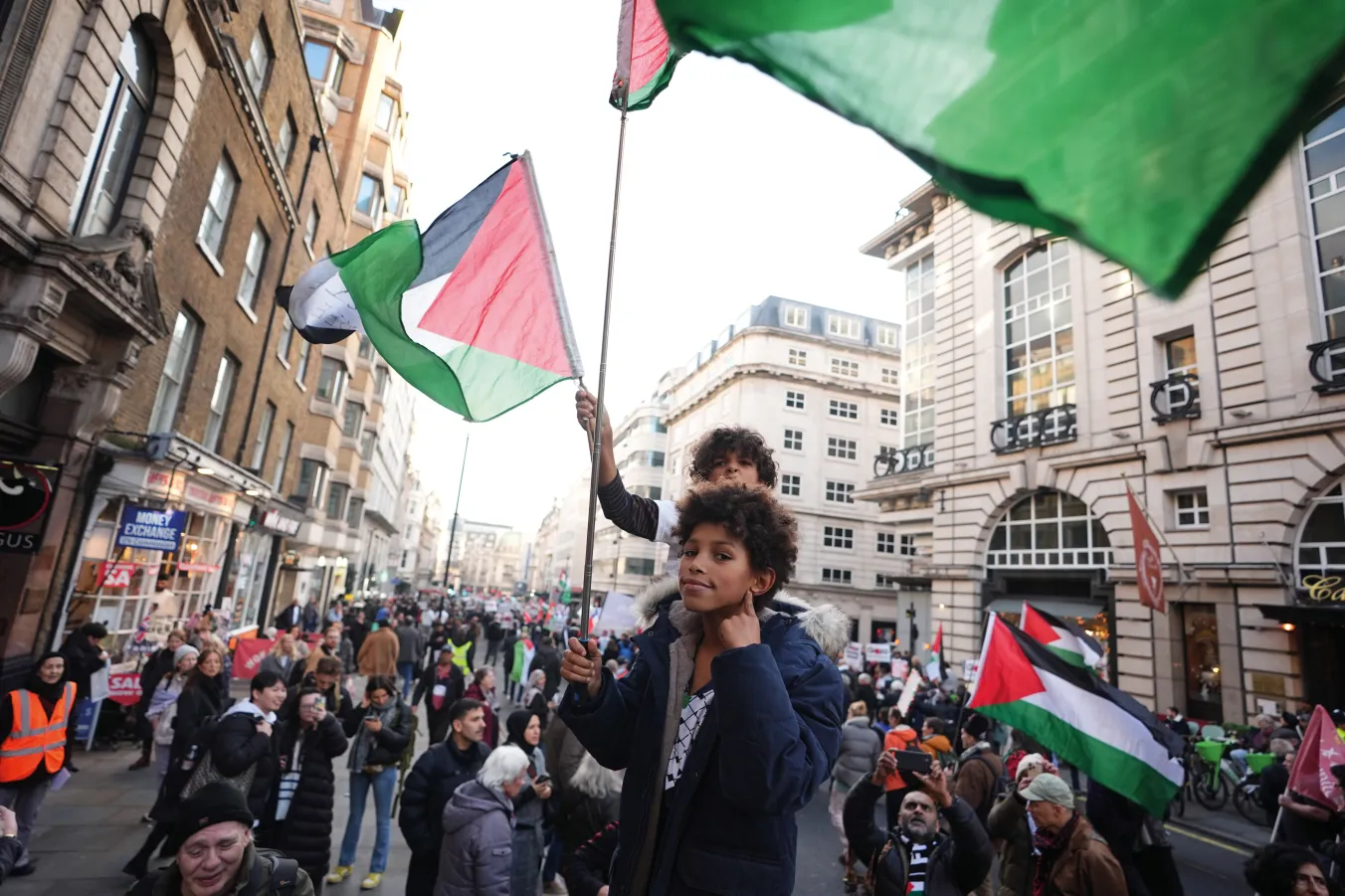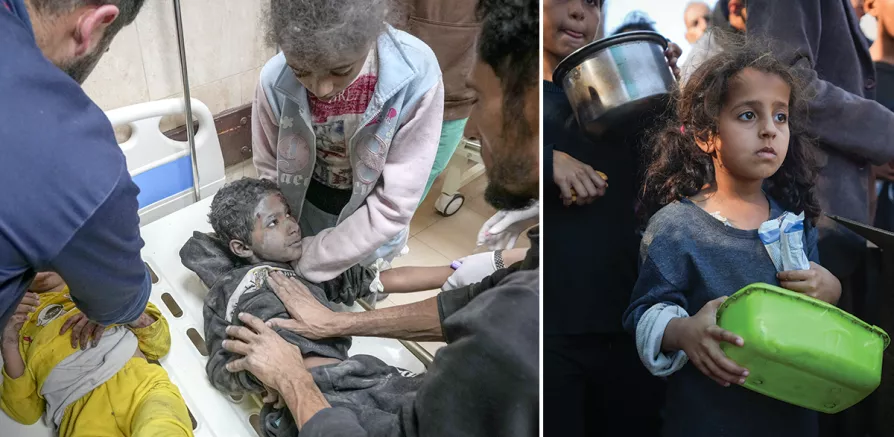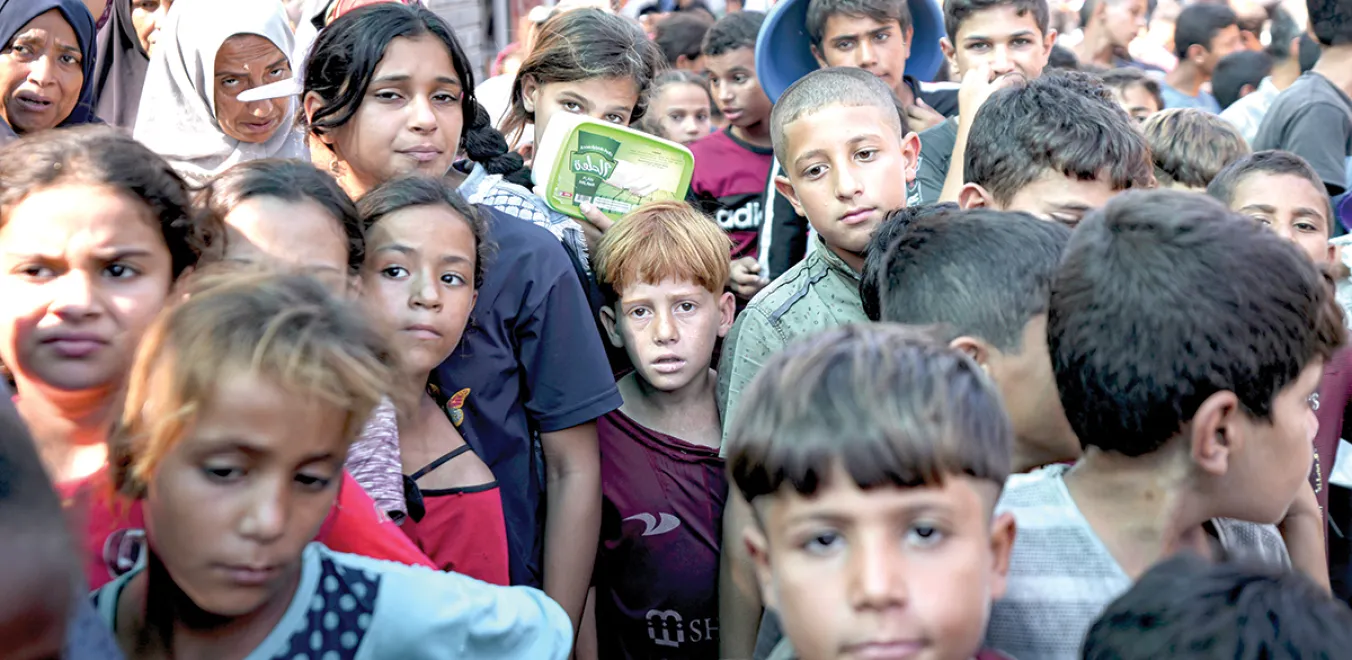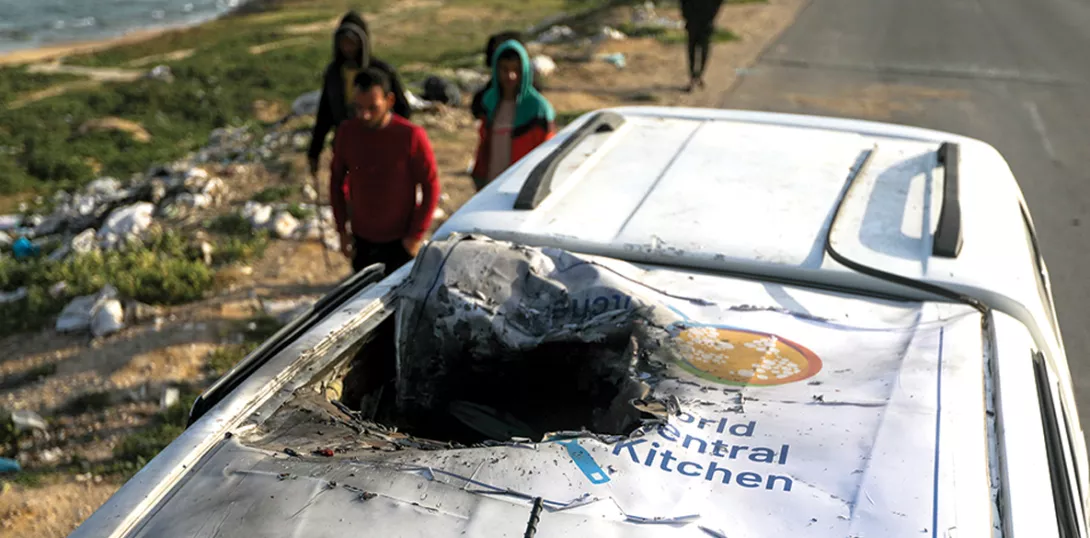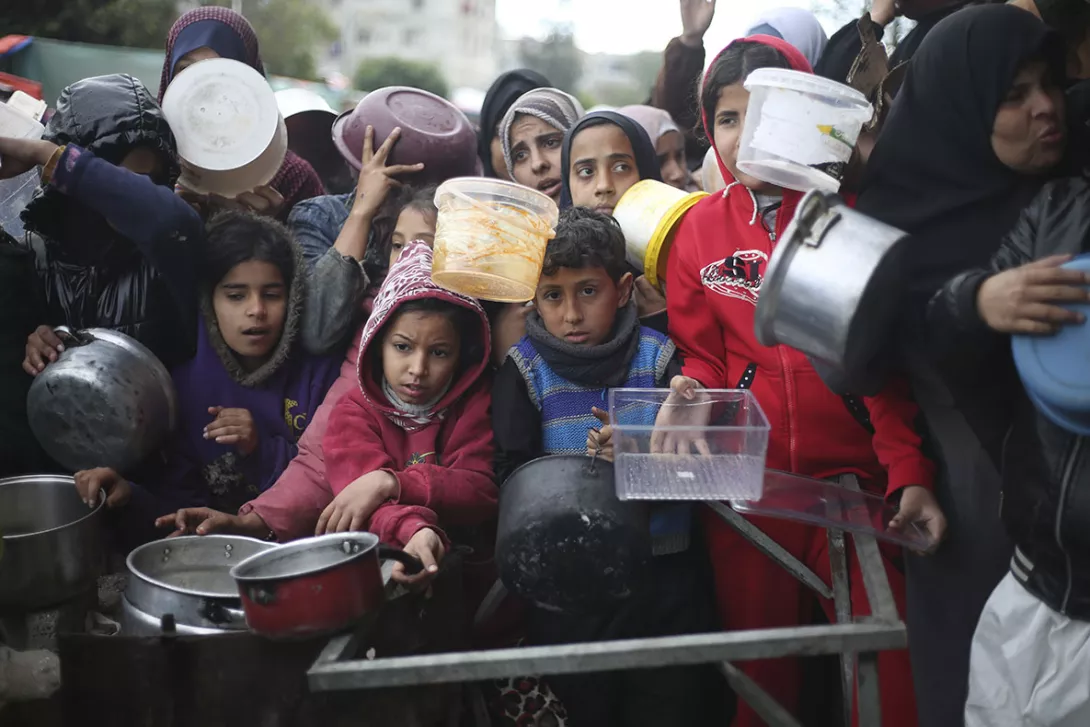
IT has been devastating to watch the massacres of civilians in Gaza by the state of Israel. Over 25,000 Gazans killed as I write this and no doubt by the time you read this, that number will have risen dramatically.
And in these numbers are over 10,000 children killed by Israel in 100 days of bombardment. More will inevitably die in the coming weeks as there seems no end in sight to Israel’s attacks on Gaza.
Add to this the war crime of denying civilians water, food, fuel, and medicines, creating famine and disease — not as the result of some kind of natural disaster — tragic enough — but as a deliberate policy by an occupying state. And all the while the world looks on — some countries in horror and powerlessness, others, like our government, in complicity.
But what has really distressed me, as a former social worker and children’s rights officer, is the plight of the children. Because the 10,000 already killed, a figure rarely heard on mainstream media are not just statistics.
These are real children, children who could be yours or mine, but for accident of birth. Children that we know from social media had hopes and dreams for their future — to be doctors, lawyers, teachers, poets and writers, actors, dancers, to excel in sports. All that talent is lost to their community and our world. It’s devastating.
But what about the children who survive? What impact will this experience have on them? Palestinian children had already been traumatised by Israeli occupation; the daily terrorism visited on them by an occupying force. Yet we know that to become healthy adults, children need love, but also security and predictability.
Despite the best efforts of their parents, many Palestinian children have never experienced security or predictability. Those of us who have been campaigning for freedom and justice for Palestinians over many years have witnessed — often first-hand — the terrorism of the occupying state.
Families and communities not knowing from day to day whether Israeli soldiers would enter their refugee camps or indeed, their homes; whether they would get to their fields to tend their olive trees; whether they would be attacked by settlers; whether their homes or land would be taken from them, given away or demolished.
Many Palestinian children have been arrested, often for throwing stones. Defence of Children International estimates that each year 500-700 children, some as young as 12, are detained and prosecuted in the Israeli military court system.
They are held away from parents and families, sometimes for long periods, with the consequent impact on their mental health and sense of security.
Collective punishment has been a fact of life for many Palestinians even before the current horrifying bombardment or the rise in killings and settler violence on the West Bank. When parents can have no security and predictability how can they provide that for their children?
Then there is Gaza. A blockade for the past 16 years left many Gazans dependent on humanitarian aid and deprived them of any sense of control over their lives.
Living not in an open-air prison, where there are some rules of how prisoners are treated, but in a concentration camp. Since 2007 there have been seven attacks by Israel. In 2014 over 500 children were killed. We thought that was utterly shocking. Now we are looking at 20 times that.
We have a whole generation of children now in Gaza (and remember children make up half the population) who have known no security, and no predictability. We know that there are high levels of mental ill health among Gazan children. What we might call PTSD, except there is no post trauma. The trauma just carries on.
A report published by Save the Children in June 2022 showed that children’s mental health was already at breaking point with 80 per cent saying they felt in a perpetual state of fear, worry, sadness and grief.
Children are incredibly resilient but we know that they cannot heal without feeling safe and secure in their environment.
And at the minute the trauma is multiplying. Children see friends and family killed, children displaced, moving from place to place where nowhere is safe. Nightly bombings. Children whose parents have written their names on their arms to identify them should they be killed.
Many thousands of children injured, often with life-changing injuries. Many have experienced medical procedures without anaesthetic. No schools, and few functioning hospitals. Not even food or water security for those children.
Incredibly, Israel is a Signatory to the UN Convention on the Rights of the Child (UNCRC). This gives rights to all children and places duties on governments to uphold these rights. As an occupying force, Israel has duties to promote this with Palestinian as well as Israeli children.
However, in Palestine, the UNCRC is being fundamentally breached. Article 6 gives children a right to life. Children also have rights to adequate health care, to education that develops their potential and to leisure, play and culture.
They are entitled to special protections in war and armed conflict and to special support to help them recover from trauma. None of this is available to the children of Gaza and precious little is available to children on the West Bank.
So when Western countries like our own are greenlighting Israel’s continued assaults on Gaza, when they refuse to call for a ceasefire and look on as Israel commits genocide, they should remember the children — and hang their heads in shame.
Kate Ramsden is a recently retired social worker and children’s rights officer. She is a member of Scottish Palestine Solidarity Campaign Aberdeen which has been organising weekly solidarity protests with the people of Gaza and Palestine.
